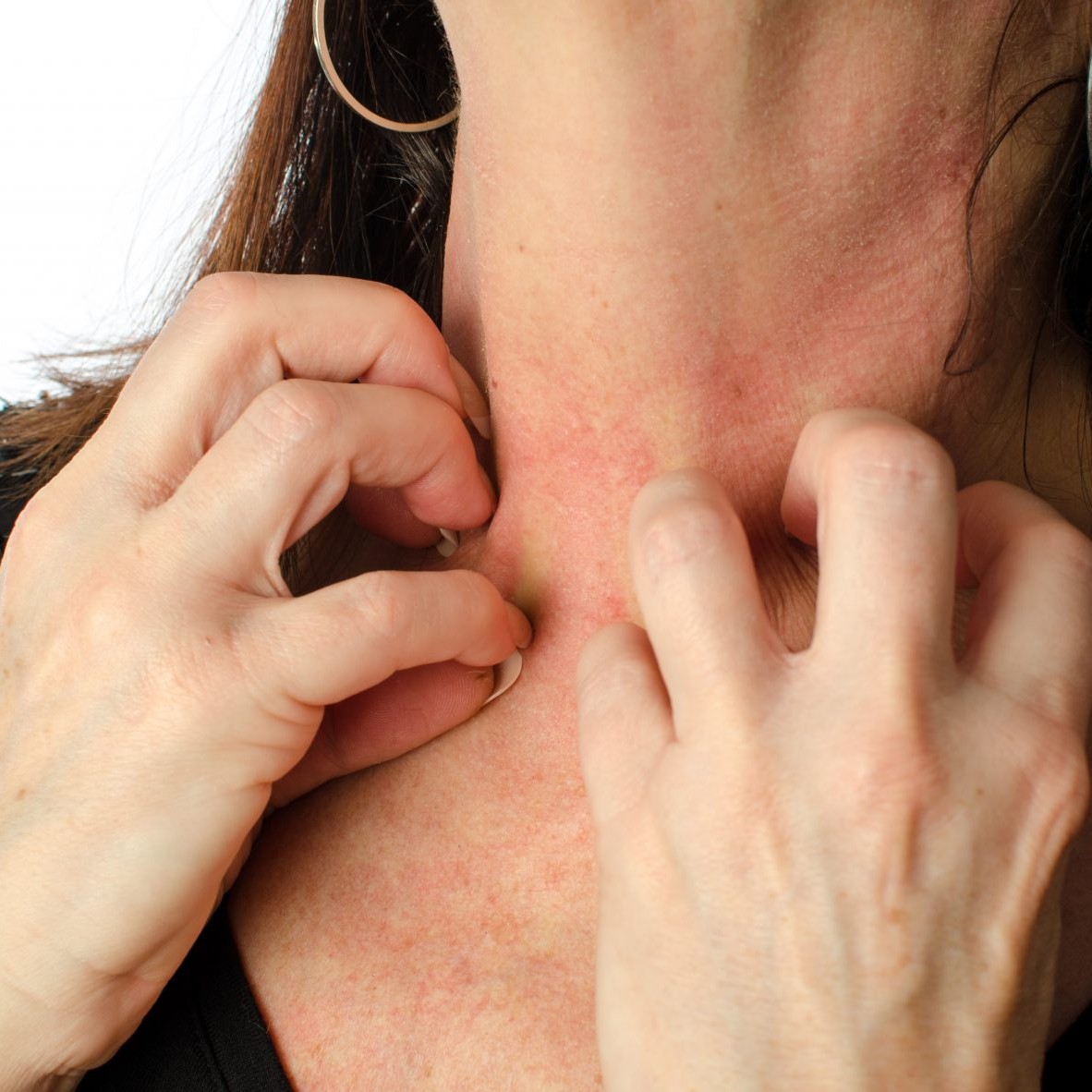We have made it to the highly anticipated holiday season! We ate more than our share of turkey, taken down the last of the fall décor, have started trimming the tree, and are double down on the holiday gift lists. With winter weather upon us or in the near future, and personal care products a favorite stocking stuffer, this is a perfect opportunity to think about proper skin care, especially if eczema or atopic dermatitis is present.
It is common for patients and even healthcare providers to use the terms ‘eczema’ and ‘atopic dermatitis’ interchangeably. All atopic dermatitis is a form of eczema, however not all eczema is atopic dermatitis. Atopic dermatitis is the most common form of eczema and typically begins in childhood. Someone suffering from atopic dermatitis typically has dry, itchy skin, as well as potential rashes that range from red/purple to brown/gray. The skin becomes so dry, itchy, and inflamed due to the immune systems hyperactivity, and loss of or lack of a protective protein called filaggrin that allow our skin to produce and maintain a strong skin barrier. Without a strong skin barrier, it is easy for moisture to quickly escape and bacteria carried by fingernails scratching the skin’s surface to get in.
Atopic dermatitis can be triggered by allergen exposure, stress, infection, or commonly weather changes. Atopic dermatitis can unfortunately worsen drastically in the winter, with this month being the start of the season in the US. The cold, dry air outside as well as the dry indoor heat cause the moisture to escape from the skins surface leading to dry skin. Issues with dry skin are further compounded by the tendency to layer up clothing and blankets, or taking lengthy and hot baths or showers.
If the itching keeps on giving this holiday and winter season, here are some helpful hints on how to help the skin survive and get some much-needed relief:
- Dress in soft, breathable clothing and avoid itchy fabrics like wool that can further irritate the skin.
- Despite the persistent itch, try not to scratch or rub the skin. This will cause additional damage and irritation as well as cause more heat on the surface of the skin which innately leads to more intense itching. By refusing to scratch, the itching cycle is broken and the skin is protected from virus and bacteria carried by fingernails.
- For relentless itching sensations, apply cool, damp cloths to affected areas to cool the skin down. Also useful are cold compresses, ice packs, or even that bag of frozen peas in the back of the freezer. Just make sure to always place a towel or barrier between very cold or frozen items and bare skin.
- Although hot showers and baths go hand in hand with winter weather, aim for lukewarm water bathing lasting for no more than 10 minutes.
- When bathing, skip the harsh washcloths and loofahs. Instead use your hands to lather up with a good cleanser. (A cleanser is different than soap or body washes. Soaps and body washes typically contain sodium lauryl sulfate which is a skin irritant, and are not as moisturizing or hydrating as a cleanser)
- Make sure cleansers, moisturizers, detergents, and skin hygiene products are fragrance free and dye free. (Look for the National Eczema Association Seal of Acceptance on products to guarantee they are free of fragrance, dyes and other common allergens.)
- When done bathing, pat the skin dry rather than harshly rubbing.
- Replace moisture in the skin by applying a moisturizer immediately after taking a bath or shower. Try to aim for moisturizing to occur within the first 3 minutes.
- Moisturizers can be classified as an ointment, cream, or lotion based on the amount of oil and water they contain. The more oil in a moisturizer, the better it usually is at providing relief and even treating atopic dermatitis. Ointments have the highest oil content and are the best line of defense for atopic dermatitis.
- Try using a humidifier. Make sure to change the water in the humidifier and clean the machine every three days. Consider using distilled or demineralized water.
The National Eczema Association is a great resource for learning more about eczema, atopic dermatitis, causes, symptoms, and treatment options. There is a wealth of information on their website: https://nationaleczema.org/
You may also be interested in . . .
Skin Care Tips: Atopic Dermatitis & Eczema
From Amanda Hofmann, VP Clinical at United Allergy Services: Earlier this month, the famous groundhog, “Punxsutawney Phil”, saw his shadow and promised 6…
Rural communities are big winners with value-added care
Rural communities in the United States are often underserved when it comes to access to healthcare. That's why National Rural Health Day is important; it…
United Allergy Services Launches Mobile Healthcare App to Encourage Patient Medication Adherence
‘myAllergyPal®’ Allows Patients Undergoing Immunotherapy Treatment to Track Symptoms, Medication and Medical Appointments SAN ANTONIO, March 6, 2014 –…


